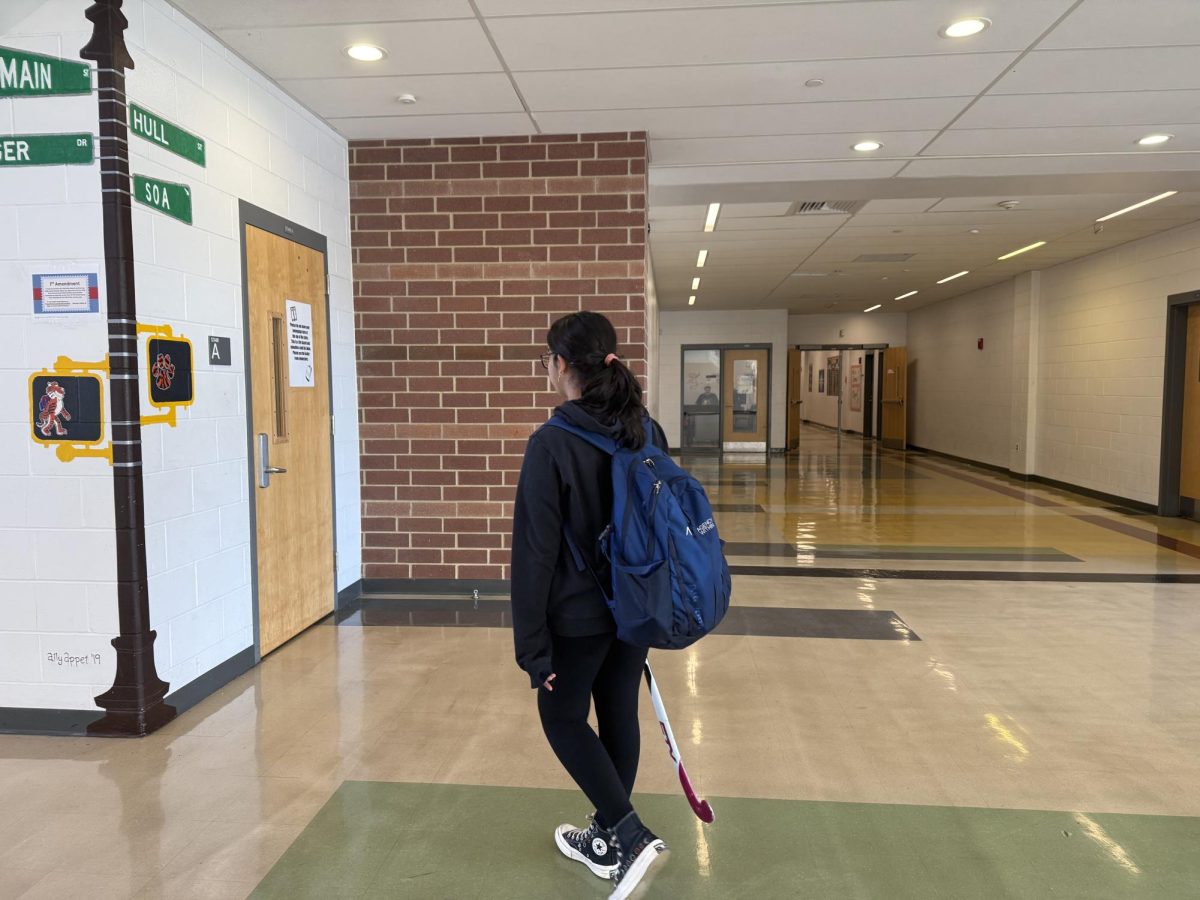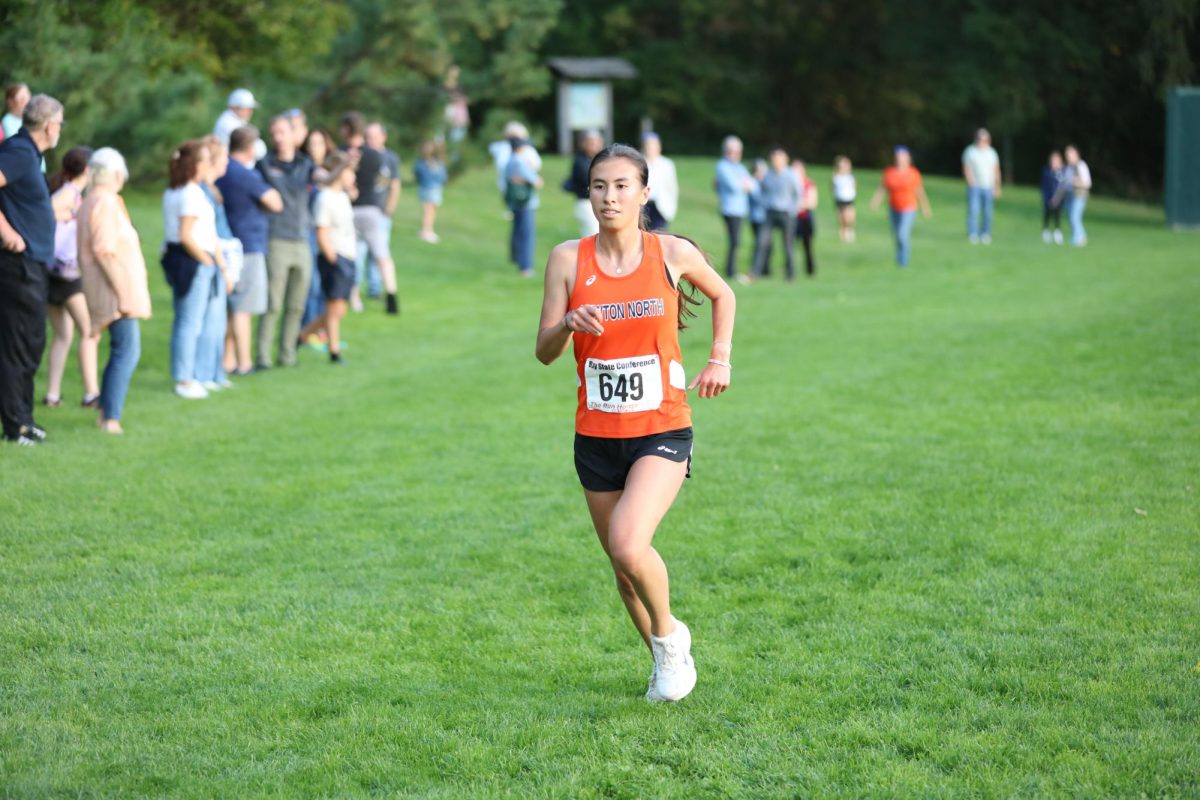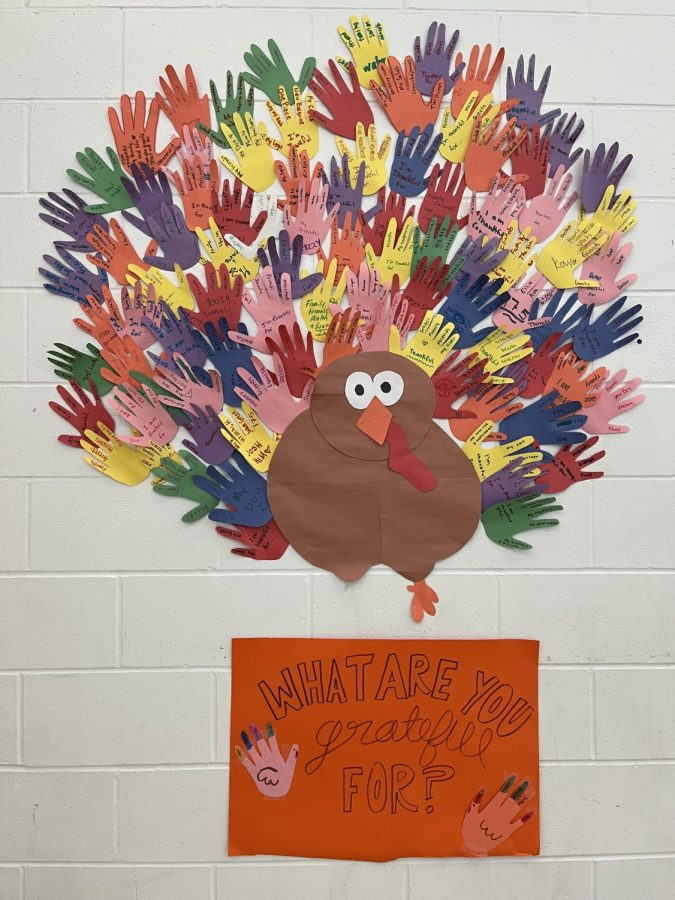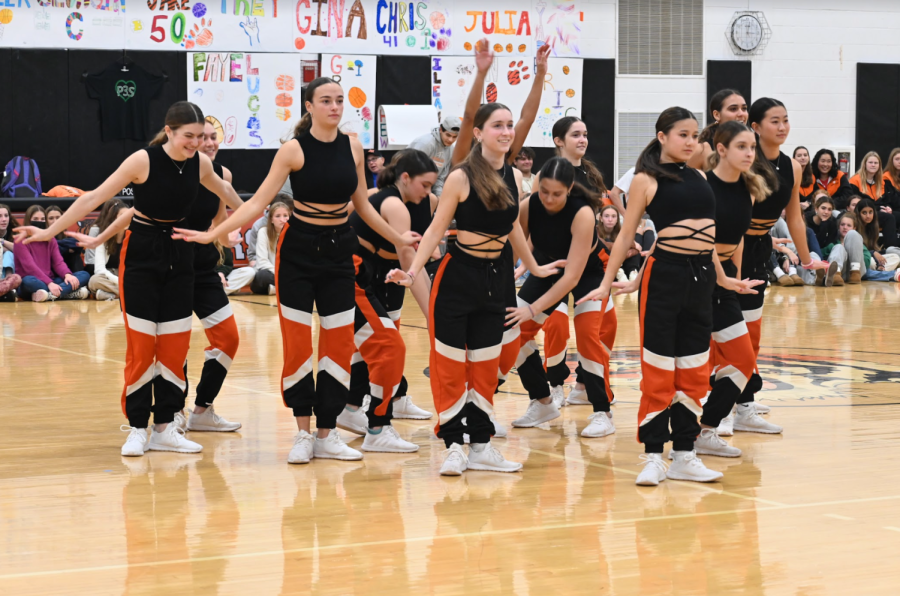 [/media-credit]
[/media-credit]
- Nakisha Lewis ’02, Paulette Jones ’67 and Mayor Setti Warren ’88 spoke yesterday F-block in the auditorium as a part of BLAC Day.
by Julia Moss
Alumni discussed their experiences as African-Americans and recalled their time at this school as a part Black Culture Awareness Day yesterday . The panelists, Paulette Jones ’67, Nakisha Lewis ’02 and Mayor Setti Warren ’88, spoke D-block in the auditorium.
Senior Robyn Estwick, the president of Black Leadership Advisory Council, introduced the presentation, and English teacher Peter Goddard moderated. Once the panelists’ finished their presentation, students had the opportunity to ask questions.
To begin the assembly, the panelists shared their favorite memories from their time at this school.
Both Lewis and Warren remembered spending time on the library steps of the old building, a place where many African-American students congregated, Warren said. Warren also said he has fond memories of serving as class president.
The discussion then shifted to the panelists’ racial experiences at this school.
Jones attended Newton High School at the height of the civil rights movement. Nevertheless, she said she experienced very little racism there.
“We lived in a part of West Newton where most people were black, and it was a community where our parents were always telling us, ‘Yes, you can,’” Jones said. “They made sure we could do anything we wanted to do.”
Jones added that the first time she felt any kind of negative racial feelings was when she was cheerleading at Brookline High School. There, she was called a racial slur. She said, “I was shocked and confused. I had never felt any kind of racial pressure here. At this school, my teachers and peers only encouraged me.”
Lewis, growing up in Boston, attended this school as a part of the METCO program. Like Jones, she said she did not feel much racial tension from her classmates. “I had a world view and so did my peers, and I think that helped us live harmoniously,” she said.
However, she remembered times when she was racially and economically stereotyped by faculty members. “Some of my counselors and administrators assumed that I wouldn’t apply to an Ivy League school or even go to college at all,” she said. “My experience with race is intertwined with experience of class. The tension that I felt was more economic than racial because I was in a different economic situation with my peers.
“I am a black woman from the inner city. It’s who I am, and I can’t separate those pieces of my identity,” Lewis said.
Warren had quite a different experience as an African-American student at this school. He said he experienced much more of a racial conflict and divide than the other panelists did. “Kids of various places would hang out based on where they were from and what color they were,” he said. “You would see separate tables in the cafeteria and separate groups on Main Street.”
Warren also spoke of a racial conflict that he said eventually brought the school together. He explained that when he was a junior, a group of students threw rocks and sticks at a METCO bus leaving the school.
“After the incident, all of the black students in the school were called into the little theatre to discuss what happened,” he said. “A lot of students felt like they were being singled out, and this ignited a lot of racial tension. There was press outside the school, and the story was on the news.”
Warren remembered that the mayor at the time asked for his help in dealing with the event. “As a student, it was very powerful having the mayor ask for my help,” he said. “The experience really helped me form my commitment to public service. It’s part of why I’m here today.”
Warren said that he and other students of all races began having meetings to try to solve the problems that had contributed to the incident. “We started having these meetings after school to talk about what we had in common and what was different about us,” he said. “I think we came out that year stronger as a class because we really brought the school together the way it wasn’t before. We broke down barriers.”
In his closing remarks, Warren encouraged students to “break out of the traditional orthodoxy and reach across whatever barrier is in front of you.”













































